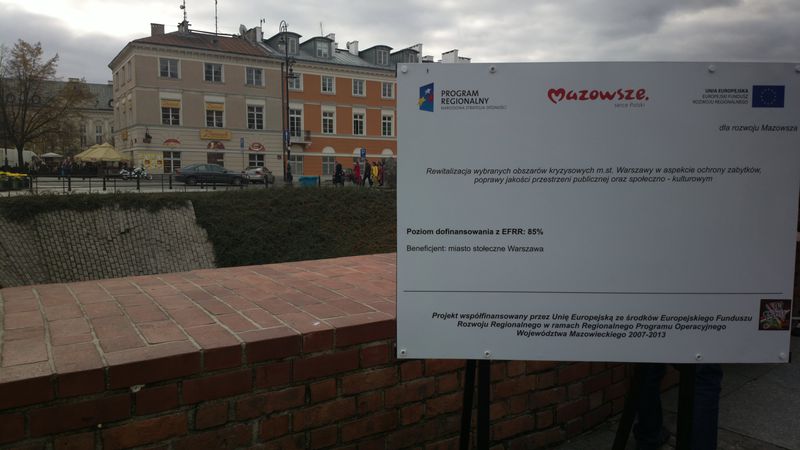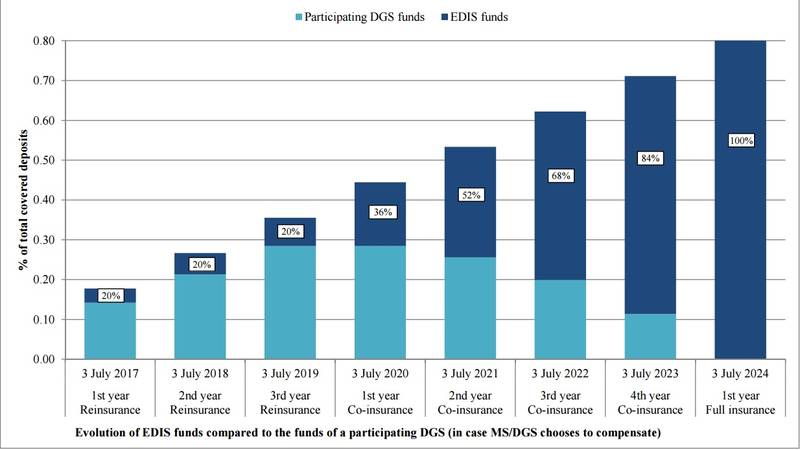Marketing Mistakes Were Made by Bulgaria and Poland in the Treatment of the Eurozone
Adelina Marini, November 22, 2013
 There's predominantly negative discourse about the euro area. Constantly debated are the problems of Cyprus, Greece, Spain and Portugal. There is talk about all those unfavourable developments. But there is no talk that if Bulgaria and Poland were part of the area of single European currency the Bulgarian and Polish citizens would have had access to twice cheaper credit. This is what Polish macroeconomist Professor Marian Noga told me in Sofia in the beginning of November. Currently he is director of the Institute for Cooperation with Business at the Wroclaw University, but he was a member of the Poland's Monetary Policy Council from 2004 until 2010. In Poland, there is a ceiling of the price of consumer credit which is four times the basic interest rate, which is 4% at the moment. This means 16 per cent. Adding to that the banks' provisions and insurances the price of the most ordinary loan could reach 20 per cent.
There's predominantly negative discourse about the euro area. Constantly debated are the problems of Cyprus, Greece, Spain and Portugal. There is talk about all those unfavourable developments. But there is no talk that if Bulgaria and Poland were part of the area of single European currency the Bulgarian and Polish citizens would have had access to twice cheaper credit. This is what Polish macroeconomist Professor Marian Noga told me in Sofia in the beginning of November. Currently he is director of the Institute for Cooperation with Business at the Wroclaw University, but he was a member of the Poland's Monetary Policy Council from 2004 until 2010. In Poland, there is a ceiling of the price of consumer credit which is four times the basic interest rate, which is 4% at the moment. This means 16 per cent. Adding to that the banks' provisions and insurances the price of the most ordinary loan could reach 20 per cent.
In Germany, for instance, where there are much more banks than in Poland, consumer lending could cost only 5%. If Poland and Bulgaria joined the euro area the citizens of the two countries would have access to thousands of banks and the interest rates could fall even four times, Prof. Noga believes. The price of lending for the businesses will also drop which will reduce the costs for production. If you are asking me we should join the eurozone immediately, the professor tells me fully conscious of how odd his words sound in precisely this moment.
But are they really odd?
Currently, the situation in the euro area is stabilising, he says, which is confirmed by the European Commission as well, which in its autumn economic forecast predicts economic recovery and for the first time an exit from the recession. There is still a long way to fulfilling all the Maastricht criteria, especially the budget deficit the ceiling for which is set at 3% and the public debt at 60%. Even the motor of the European economy, Germany and France, have their public debt above the admissible values. France's is above 80 per cent, and Germany's above 70, he adds. The precise numbers in the Commission's forecast are much more unfavourable for France, though. France's debt this year will expand to 93.5% and is forecast to continue to grow in the next two years. The budget deficit is also above the admissible norms. In 2013 it will be 4.1%. The German public debt will be 79.1% this year but is on a stable course toward reduction. For quite some time now the country's budget deficit is very far from the Commission ceiling - a complete balance this year and -0.1% deficit next year.
Professor Noga is among those economists who believe that the European Central Bank's policy for cheap credit (LTRO) is very good and is the right decision. Greece, Portugal and Spain received assistance, but this was wrong because it makes some countries to practically work for others. While the long-term cheap loans of the ECB, from which 800 banks benefited in the second phase amounting to half a billion euros, are the good solution because here we have no situation where a country is working for another. Prof. Noga admits that he is a supporter of a European federal reserve because here we have 3-year credits at a cost of less than 1%. Moreover, those are loans not only for euro area banks, but for all in the EU.
In this regard, the professor is of the opinion that the banking union will have no implications for the non-euro countries in any way - neither positive nor negative. A major issue in this regard, however, is banking supervision. It is very important how will it be implemented because in the US in the pre-recession period there were five types of banking supervision and none succeed to detect the problems. In Europe, every country has banking supervision of its own, he says. As of the autumn of 2014, however, there will be common supervision, thanks to the completed first pillar of the banking union - the single supervision mechanism. Currently work is ongoing on the second pillar - the single resolution mechanism. The problem with supervision is to be done in such a way that it not only checks the banks' assets but their quality as well, the professor underscores.
The big issue in the European Union right now is how exactly the planned stress tests of the banks will take place that will precede the enforcement of the single supervision in the EU, which, though, will not be valid for all. It will be mandatory for the euro area, but all non-euro countries could decide to join on a voluntary basis. On October 23 the ECB announced details on the methodology for the bank stress tests approved by the EU finance minsters at their last ECOFIN on November 15th. Three are the main points on which the tests will focus: qualitative and quantitative risk asset review, which includes liquidity, leverage and financing; review of the quality of the assets to see the banks' exposure and capital adequacy; sustainability of the banks' balance sheets.
To the overall debate on the banking union Professor Noga added the financial transaction tax which will be applied by some member states under an enhanced procedure but is a subject of many serious disputes and conflicts. The Polish macroeconomist is among those who see a problem with the tax. In Poland, for instance, it is not consistent with the Constitution because it will put the banking sector on an unequal footing to other sectors of the economy. According to him, this issue is not sufficiently discussed in the framework of the debate about the banking union.
Polish economy is indeed cooling down
The economy of the EU biggest new member state is in a process of slowing down, but this is temporary. It is the only one which in the course of 20 years had not a single quarter with negative growth. The only one not simply in the EU but in Europe at large, Professor Noga recalls. The slowing down, in his words, is due to the fact that the Polish economy is very dependent on the euro area and the German economy in particular. He admits that the EU funds have a significant merit for the Polish economic success. To the question whether the EU subsidies create dependency on growth based on EU funds only, the professor has responded that he sees no other way for convergence of the living standards. He has recalled, though, that Poland is paying quite a big contribution to the EU budget, although it still gets more than it gives. But this is valid for rich Germany, too, as he put it, which also got solid European funds to help the development of the eastern provinces after the unification of Germany.
The problem with EU funds, he continued, is that they turn into a political tool. So far, Poland has received 360 billion euros, but the opposition is holding the government accountable why were they not 500 billion and insists for a resignation. In Poland everything is politics, he says. Even when the soup is too salty again the government is to blame. This, however, is not a trade make of Poland, I assure him while reviewing the list of other "wrongdoings" of the Polish government. According to the Commission's autumn forecast, the country's real gross domestic product is expected to be 2.5% next year and 2.9% in  2015. The budgetary deficit, however, will increase mainly due to shortage of revenues, tax revenues in particular. This year the gap in Warsaw's public finances will be 4.8% of GDP.
2015. The budgetary deficit, however, will increase mainly due to shortage of revenues, tax revenues in particular. This year the gap in Warsaw's public finances will be 4.8% of GDP.
But instead, the Commission expects a decline of the public debt-to-GDP ratio from 55.6% in 2012 to 51 per cent in 2014. The data about the debt, however, the Commission analysis says, is that they hide great uncertainty because of the volatility of the Polish currency (zloty).
The European Commission interim report on the implementation of the country-specific recommendations shows that Poland, in paper, had undertaken fiscal rules to ensure budget discipline, but it has still not started to implement them. Tax compliance is still a problem and also the pension reform. The most unreformed areas remain precisely the pension system and the special social security scheme for farmers. There is no reform in the high and scientific education, while investments in research and development are insignificant, are the Commission's conclusions.
 Elke Koenig | © European Commission
Elke Koenig | © European Commission | © European Commission
| © European Commission Klaus Regling | © Council of the EU
Klaus Regling | © Council of the EU Mario Centeno | © Council of the EU
Mario Centeno | © Council of the EU Mario Centeno | © Council of the EU
Mario Centeno | © Council of the EU | © European Parliament
| © European Parliament